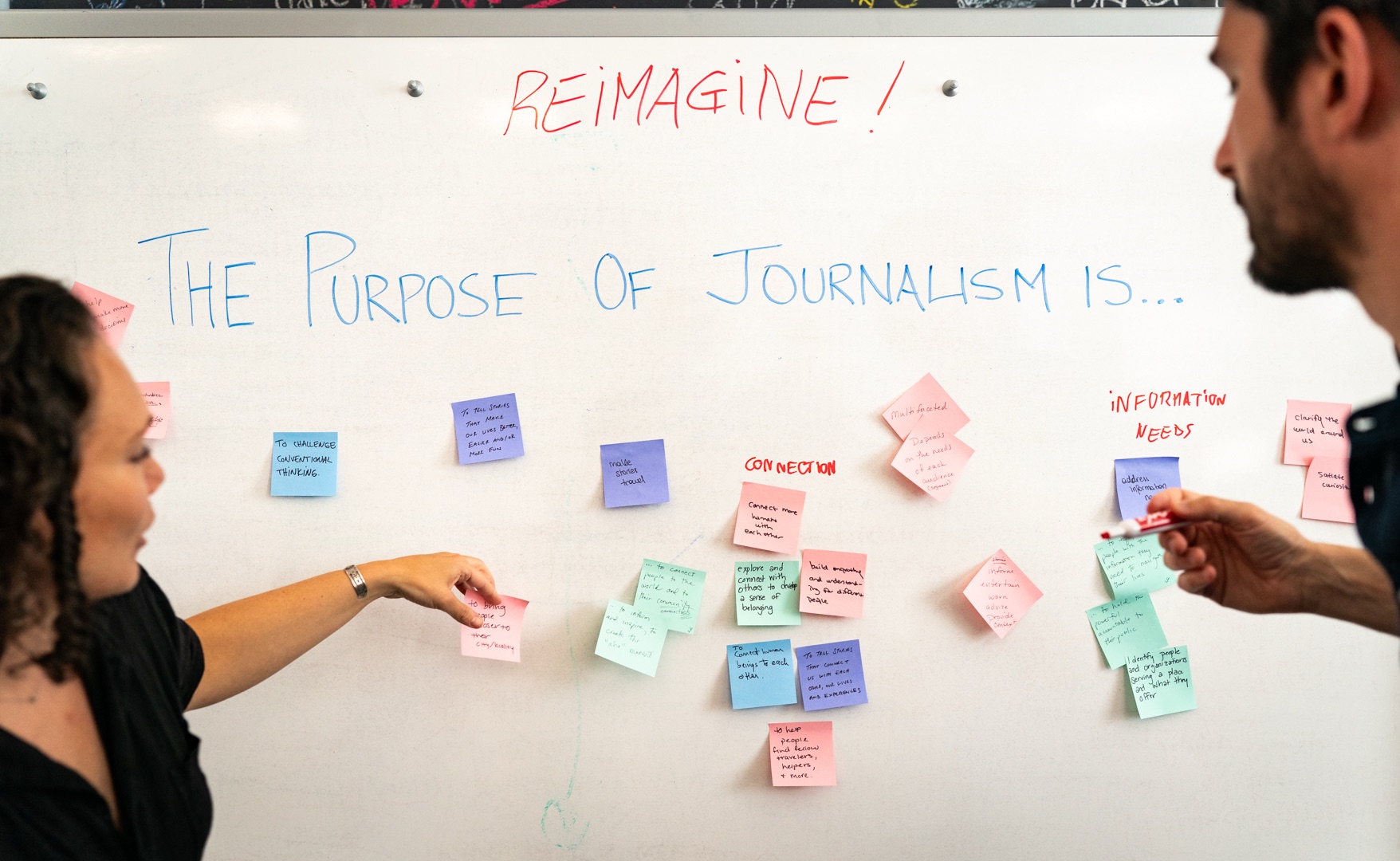Can new software help journalists do a better job of gathering, organizing and making sense out of newsworthy information? That's the question the Knight Lab has set out to answer through our Untangled project.
When Joe Germuska wrote about Untangled in April, we were imagining a multipurpose "browser-based knowledge management" tool that would help journalists keep track of information they found online. Since then, we have explored this idea through a variety of approaches: by evaluating different technologies, by writing some code, by interviewing journalists about their needs, and by observing how journalists use the Web and online databases to do research for their reporting projects.
Our key conclusion from the work so far: "Browser-based knowledge management" is too broad an idea. Even if we could identify tools that would help a journalist manage information they find online, the list of possibilities was too long and the journalists' needs not sufficiently defined to come up with a clear project scope.
So for now, we have narrowed the project scope to a particular kind of information that journalists want to gather and document: connections that link people, businesses, organizations and government agencies. We think this makes sense because documenting connections among "entities" (the computer-science term for people, businesses, etc.) is a frequent reporting tactic. Stories resulting from this kind of research cover topics such as campaign contributions, political influence and insider trading.The promise of Untangled: make it easy for journalists to find patterns and meaning in data and present the most important findings in a compelling way.
The promise of Untangled: make it easy for journalists to document newsworthy connections, capture the information in a structured form, find patterns and meaning in the data and ultimately present the most important findings in a compelling way.
In late June, the Lab's Jessica Soberman and I took the Lab's idea for a connections-focused reporting tool to the annual convention of Investigative Reporters and Editors. We conducted in-depth interviews with six journalists to understand better how they currently do research into connections among people, businesses and organizations, and what their "pain points" are in the process. Jessica also observed student journalists working for the Medill Watchdog project, who frequently conduct research to identify connections -- for instance, between elected officials and their private lobbying clients and between municipal leaders and government contractors in Rosemont.
The good news: journalists who do this kind of reporting immediately saw the value of a tool that helped them manage all the information they accumulate about connections among entities. They told us that when they are reporting on a complex topic, they already try to keep track of relationships with spreadsheets or sketches -- but find these tools to be of limited value.
The bad news: Most journalists today are not consistent or systematic in how they research and document connections in their reporting. A tool like Untangled could impose structure on the reporting process, but it could also easily create more work for a journalist without providing any obvious value in the near term.
In other words, we face a chicken-and-egg problem. For a journalist, the value of Untangled won't be apparent until he or she has entered information into the tool — but most journalists won't want to take the time to do that until they see why it would be worthwhile.
As an example, imagine a reporter who wants to look at whether campaign contributions influence actions taken by elected officials. The reporter might start with a database of campaign contributions and information about legislation those elected officials supported. He or she would then supplement these sources with information gathered through additional reporting: for instance, about contributors who own property together, or elected officials who have outside business relationships, or contributors who are related to each other through kinship or marriage.
That kind of project would be the ideal next step to help the Lab develop Untangled: a real-world reporting project of interest to a single journalist who wants to document and understand the connections among people, businesses and other entities. We'd ask our journalist partner to enter data into Untangled, identify cumbersome aspects of the data-entry process and use the software to help prioritize his or her research. Once enough data is entered, we'd work together on ways to spit the data back out -- in tables, charts, network diagrams or other forms.
If you're a journalist with an idea for a reporting project involving newsworthy relationships, and would like to work with us to develop Untangled, please contact us at knightlab@northwestern.edu.
About the author





